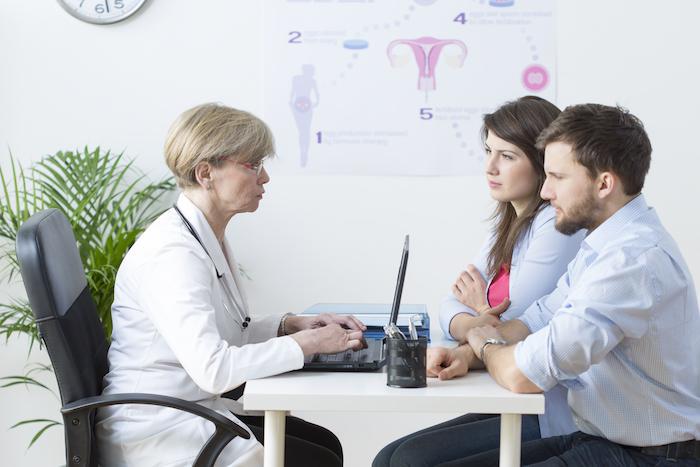Low Egg Reserve: Understanding Its Impact on Fertility and Treatment Options for Women in Texas

When you are trying to conceive, there is so much to learn about ovulation and sperm. An important piece of the puzzle is understanding how egg reserve impacts the fertility journey and if testing for a low egg reserve is right for you.
Understanding Low Egg Reserve
Your egg reserve, or ovarian reserve, reflects the quantity and quality of your eggs. Age is a key factor. The number and quality of eggs you have gradually declines as you get older. Low egg reserve is when the number of eggs is less than what is expected for the patient’s age.
You cannot confirm you are experiencing a low egg reserve without fertility testing. Some signs that may indicate a low egg reserve include experiencing irregular menstrual cycles, difficulty conceiving, unusually short menstrual cycles, or recurrent miscarriages.
Contributing Factors to a Low Egg Reserve
The most known factor influencing low egg reserve is age, but it is not the only thing that impacts the number or quality of your ovarian reserve.
- Age: Ovarian reserve naturally declines with age. There is a significant decrease after the age of 35.
- Genetic Factors: Certain genetic conditions, such as Turner syndrome or Fragile X syndrome, can impact ovarian function and reduce egg reserve.
- Medical Treatments: Previous surgeries on the ovaries, radiation therapy or chemotherapy may affect ovarian function and diminish the egg reserve.
- Lifestyle Factors: Smoking, excessive alcohol consumption and exposure to environmental toxins can have a negative impact on ovarian health and egg reserve.
Testing For Low Egg Reserve
At IVFMD, you are paired with a fertility specialist who gets to know you, your fertility journey and family planning goals and helps determine the best place to start.
There are several methods to assess your fertility and check your ovarian reserve. When it comes to low egg reserve, we’ve found your AFC (Antral Follicle Count) and the level of Antimullerian Hormone (AMH) are the most helpful indicators.
Your antral follicle count is determined by a baseline pelvic sonogram during the first three days of your menstrual cycle. The sonogram shows how many follicles are in your ovaries. A normal amount is 12 per ovary. A count of 1-10 follicles is considered low.
Your antimullerian hormone levels are measured through a blood test. An AMH level of 1.5 ng/ml or higher is considered normal and an AMH level of less than 1.0 ng/ml is considered low.
Low Egg Reserve Diagnosis and Treatment
If testing reveals you have a low egg reserve, it is not the end of your fertility journey. Remember: a diminished egg reserve does not mean eggs are not present – it only takes one egg to result in a successful pregnancy!
Treatment options vary based on the AFC and AMH levels:
- Borderline or low ovarian reserve: In vitro fertilization (IVF) can be an excellent option for borderline or low ovarian reserve. We offer the estrogen primed antagonist protocol to help the maximum number of follicles reach maturity in your cycle. This method has helped many patients conceive over the years.
- Very low ovarian reserve: In this case, the mini IVF protocol may be the best treatment option. This gentler approach uses cost-effective medications like clomiphene to help release the natural follicle stimulating hormones from the pituitary gland. These hormones cause the follicles to grow. We recently introduced the INVOCELL® capsule that allows a patient to carry her own embryos during the five-day culture period, which helps to keep costs down.
- Extremely low ovarian reserve: Ovulation induction with intrauterine insemination for several cycles is the best option for women with extremely low ovarian reserve. This method keeps costs down and avoids the emotional burden that comes with IVF treatment.
Moving Forward with Low Egg Reserve
For women diagnosed with low egg reserve, alongside treatment we recommend considering lifestyle changes that improve egg quality.
- Maintain a healthy weight with a body mass index less than 35.
- Keep your stress in check. Stress decreases the release of natural follicle stimulating hormones and can throw a wrench into mini IVF treatments.
- Eat foods with natural antioxidants, like blueberries, green tea and vegetables. Antioxidants have been shown to increase the fertilization rates in patients undergoing IVF treatments.
- Avoid smoking and breathing in secondhand smoke.
- Take a coenzyme Q10 supplement to encourage cell division after fertilization.
- Consider taking DHEA to increase the number of eggs available each month.
To find out how we can help you, schedule a consultation with a caring and experienced doctor at IVFMD. Call one of our convenient locations in Irving, Arlington, or Grapevine,Texas, or request an appointment online.
- Special IVF Protocols for Diminished Ovarian Reserve - February 5, 2025
- Is IVF the Right Choice? - March 2, 2024
- What to Consider When Choosing a Fertility Clinic - February 29, 2024